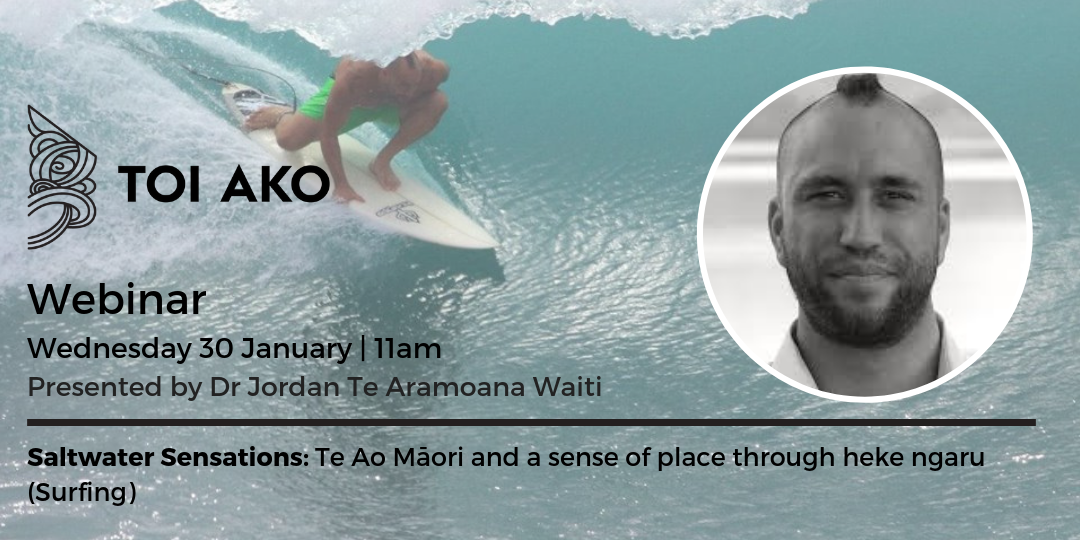
Saltwater Sensations: Te Ao Māori and a sense of place through heke ngaru (Surfing)

- This event has passed.
Saltwater Sensations: Te Ao Māori and a sense of place through heke ngaru (Surfing)
January 30, 2019 @ 11:00 am - 12:00 pm
Free
Māori have a unique relationship with the ocean that stretches back many generations to the arrival of the seminal voyaging canoes. Since that time, Māori have ridden waves on various types of surfcraft but while the literature identifies the therapeutic effects of surfing and place-based health, there is a distinct lack of cultural identity and environmental spirituality identified within these largely Western-based studies.
Join Dr Jordan Waiti for this hour long webinar where he will share his insights around his study of heke ngaru (surfing). Utilising key informant interviews, an online survey, historical and auto-ethnographic accounts, the study found that Heke Ngaru was a traditional cultural custom that enhanced all aspects of Te Whare Tapa Whā (Durie, 1985). The results suggest that for some Māori a deep sense of place prevails with certain surf breaks in Aotearoa, and that this sense of place manifests an array of thoughts and feelings related to spiritual, familial, physical and cognitive perceptions. For some, these thoughts and feelings relate back many generations to their tribal ancestors, tribal boundaries or directly to specific atua such as Tangaroa and Hinemoana.
In a wider sense, the implications of these findings highlight the need to ensure that these oceanscapes and surf breaks are maintained for the future benefit of all New Zealanders’. Moreover, that reclaiming this space through heke ngaru participation is a potential future pathway for optimal Māori health and wellbeing.


